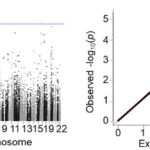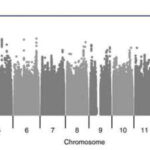Adverse pregnancy outcomes preeclampsia and post-partum hemorrhage impacts millions of women and babies, but have been poorly investigated using genetic approaches. Preeclampsia increases risk of cardiometabolic diseases. We are using genetic and omic approaches to investigate maternal and fetal contributions to understand the pathophysiology of these diseases.

Genetics of Adverse Pregnancy Outcomes
- What maternal and fetal genetic factors cause preeclampsia?
- How does preeclampsia relate to cardiometabolic risk factors and outcomes?
- What genetic factors contribute to post-partum hemorrhage?
- What maternal and fetal genetic factors cause preeclampsia?
- How does preeclampsia relate to cardiometabolic risk factors and outcomes?
- What genetic factors contribute to post-partum hemorrhage?
Projects
Multi-omics for precision medicine in preeclampsia
This project aims to discover common and rare variants for preeclampsia, identify molecular pathways altered before clinically defined disease using multi-omics analysis, and use PE polygenic scores to predict maternal morbidity and future maternal cardiovascular health.
News
Publications
Risk of pre-eclampsia in patients with a maternal genetic predisposition to common medical conditions: a case-control study
Publication Date: September 14, 2020
Journal: British Journal of Obstetrics and Gynaecology

Gene-Centric Analysis of Preeclampsia Identifies Maternal Association at PLEKHG1
Publication Date: July 2, 2018
Journal: Hypertension

Genetic predisposition to preeclampsia is conferred by fetal DNA variants near FLT1, a gene involved in the regulation of angiogenesis
Publication Date: November 11, 2017
Journal: American Journal of Obstetrics and Gynecology
